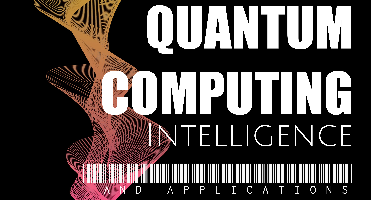
andrevilela
Project OwnerPrincipal Investigator (PI). He is responsible for the overall scientific direction, coordination, and execution of the research plan.
DEEP Connects Bold Ideas to Real World Change and build a better future together.
Coming Soon
Milestone Release 1 |
$12,120 USD | Pending | TBD |
Milestone Release 2 |
$12,120 USD | Pending | TBD |
Milestone Release 3 |
$12,120 USD | Pending | TBD |
Milestone Release 4 |
$12,120 USD | Pending | TBD |
The experienced FromScience.io scientific team investigates the applicability and consequences of quantum computing architectures dedicated to Artificial General Intelligence (AGI) applications. We explore four quantum systems and their impact on the AGI evolution: trapped-ion, superconducting, photonic, and topological quantum computing. We seek to develop a clear panorama of conceivable implications, highlighting binding capabilities and identifying pathways where these paradigms may effectively support AGI development within the OpenCog Hyperon framework, while enlightening the AGI community.
This RFP seeks a technical and experimental assessment of quantum computing architectures in AGI applications. Proposals should explore the practicality and limitations of various quantum approaches — including trapped-ion, superconducting, photonic, and topological quantum computing — in handling probabilistic reasoning, parallel processing, and large-scale knowledge representation. The research could include quantum-classical hybrid simulations and feasibility studies for applying quantum advancements to AGI workloads. Bids are expected to range from $20,000 - $100,000.
New reviews and ratings are disabled for Awarded Projects
Check back later by refreshing the page.
Identification of quantum paradigms and research plan. Review the OpenCog Hyperon framework and perform a literature exploration of quantum paradigms and hardware architectures: trapped-ion, superconducting, photonic and topological systems. It includes analyses of their theoretical suitability for AGI tasks such as probabilistic inference, large-scale pattern recognition, and symbolic knowledge manipulation. Timeline: 45 days.
Submission of a comprehensive research plan outlining quantum paradigms investigation simulation strategies, and potential impact and criteria for evaluating trapped-ion, superconducting, photonic, and topological systems performance in AGI-relevant contexts.
$12,120 USD
Demonstration of substantial research progress. Report progress in the technical and experimental review phase focusing on the following quantum computing paradigms: trapped-ion and superconducting systems. This phase will involve early-stage simulation and theoretical modeling to assess how entanglement gate fidelity and error correction mechanisms may be leveraged to support AGI components particularly Probabilistic Logic Networks (PLN) Economic Attention Allocation (ECAN) and Dynamic Attention Systems (DAS). Timeline: 45 days.
Submission of preliminary simulation investigation findings and technical documentation showing how quantum simulations can model or enhance fundamental AGI subsystems. Deliverables will include initial simulation codes potential benchmarking data and theoretical integration strategies with the selected quantum architectures.
$12,120 USD
Continued demonstration of deeper research progress. This phase will focus on expanding quantum computing literature and modeling analysis to photonic and topological systems refining prior simulation models and conducting a more detailed evaluation of hybrid quantum-classical approaches and their contribution to AGI processes. Timeline: 45 days.
Submission of project findings report including updated technical documentation expanded simulation data and refined evaluations of quantum-classical integration strategies with the selected quantum architectures. Deliverables will also address the performance stability and scalability of quantum-classical hybrid models in AGI-relevant contexts laying the groundwork for final recommendations and feasibility findings.
$12,120 USD
Final stages of research progress. Finalize the research with a comprehensive comparative evaluation of the quantum computing paradigms explored and an outreach event. This phase will focus on synthesizing findings into a complete feasibility analysis identifying potential performance advantages over classical methods and developing strategic recommendations for future AGI research leveraging quantum systems distinguishing between attainable capabilities and speculative claims. Timeline: 45 days.
Final technical report presenting detailed theoretical analysis of each paradigm’s performance and simulation data in AGI-relevant contexts. The deliverables will include: (1) a conclusive framework report for assessing the applicability of quantum computing to AGI systems (2) an open-access symposium event titled: "Open Quantum Intelligence" to present results to researchers practitioners and the broader AGI and quantum computing communities and (3) the identification of potential high-impact journals for publication of the results.
$12,120 USD
Please create account or login to post comments.
Reviews & Ratings
New reviews and ratings are disabled for Awarded Projects
Check back later by refreshing the page.
© 2026 DEEP Funding
Sort by